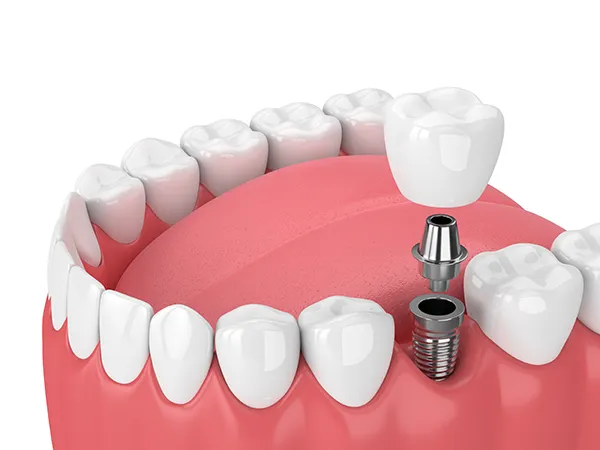Dental Implants in Scottsdale Dental implants are one of the fascinating discoveries that have led to the growth of the dental industry. Before they were invented, people mainly relied on dentures and bridges to improve their teeth and overall appearance. Today, millions of people choose dental implants as they offer better smiles and function. They offer permanent solutions to those who have lost their teeth to bacteria infection and decay. Here at GOREgeous Smiles, we welcome you to get a successful dental implant surgery with us. Dental implants are one of the fascinating discoveries that have led to the growth of the dental industry. Before they were invented, people mainly relied on dentures and bridges to improve their teeth and overall appearance. Today, millions of people choose dental implants as they offer better smiles and function. They offer permanent solutions to those who have lost their teeth to bacteria infection and decay. Here at GOREgeous Smiles, we welcome you to get a successful dental implant surgery with us.What Is a Dental Implant Surgery?Dental implant surgery is a procedure where an artificial tooth is inserted into your jawbone. They ensure the prosthetic teeth are in place and can function like natural teeth. The surgery ensures you feel and look natural because the teeth used for implants also look very natural. How Do Dental Implants Work?Dental implants function like permanent teeth, and it has three crucial parts. The first part of the dental implant is inserted into your jawbone to serve as the roots. It is usually treated with certain substances to ensure they interact well with your bones and gum tissues. The second part of your dental implant is the abutment, which connects the implant post to the dental crown. The third and final piece, the crown, attaches to your implant. The dentist will give you the perfect size that will match the shape and size of your mouth. One of the main benefits about dental implants is that they are permanent solutions. Therefore there will be no need to fix any bridges or other dental solutions to replace missing teeth. Benefits of Dental ImplantsDental implants are essential in replacing missing teeth, but they also come with many other benefits. First of all, they enhance your appearance. They allow you to smile confidently and speak fluently. They are also very comfortable to wear, and you do not have to remove them to clean them constantly. You can easily clean them while they are in your mouth. Dental implants also make eating easier, and most importantly, they improve your oral health. This is because you can easily access in between the teeth, which makes flossing and brushing effective. Another great thing about implants is they are durable. If you take good care of them, they can last for a lifetime and offer you much convenience, as removing them is unnecessary. Dental Implant ProcedureGetting dental implants is a process and takes some time. They are worth it, to improve your appearance and solve other dental problems. When you visit our dentist, the first thing we will do is examine your mouth and provide you with the necessary details about the surgery. We will also ask if you have any questions regarding the dental implant placement. We will take X-rays to see if you have dental conditions like hidden tooth decay, gum problems, or jaw issues. All tooth decay will be removed, and you will be required to wait for at least two months before the actual procedure. During the procedure, a titanium fixture will be placed right where your teeth used to be. You will require another couple of visits, after the implant has had time to fuse with your jawbone, so you can get the abutment and crown placed. To see if you qualify for dental implant surgery, contact GOREgeous Smiles by calling 480-585-6225 to set up a consultation. |